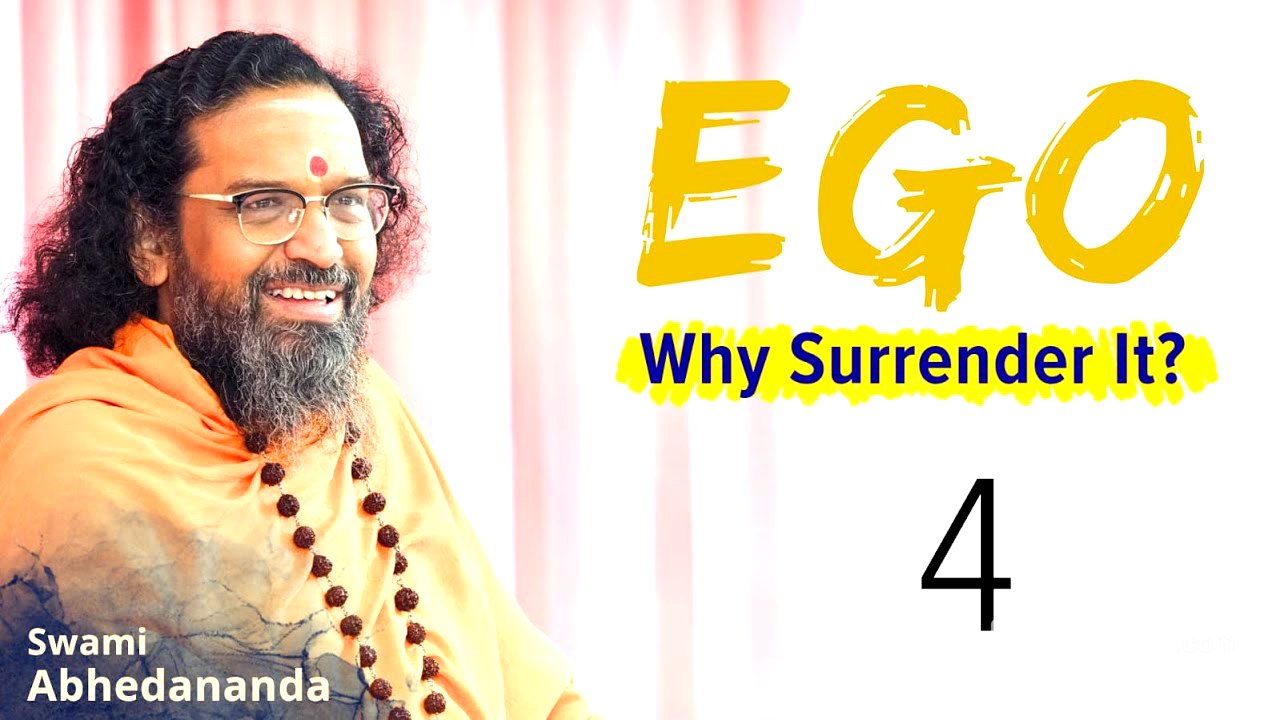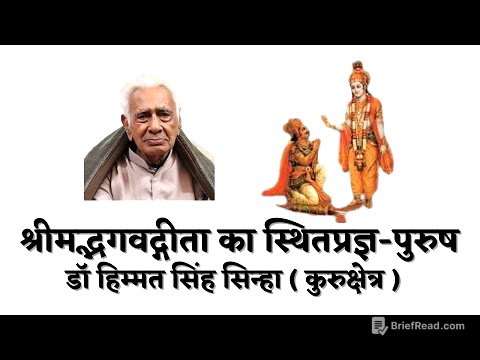TLDR;
This video is a devotional discourse centered around the Ramayana, focusing on the breaking of the bow and its symbolic significance in overcoming ego. It emphasizes the importance of humility, acceptance, and surrendering one's desires and knowledge to a higher power. The talk also explores the concept of true love and devotion, contrasting it with superficial expressions of affection.
- Overcoming Ego
- Humility and Acceptance
- True Love and Devotion
Introduction [0:02]
The video begins with devotional music and chants, setting a spiritual tone for the discourse. These opening segments include various mantras and hymns dedicated to deities such as Ganesha, Rama, and Hanuman, creating an atmosphere of reverence and devotion.
Ego and Acceptance [8:58]
The speaker discusses the concept of ego, explaining that it involves not being able to give up desires, knowledge, or one's sense of self. This leads to rejecting others and ultimately results in isolation and a lack of acceptance. The speaker emphasizes that arrogance causes one to find fault in everyone, even God, leading to a life of dissatisfaction and loneliness.
The Consequences of Arrogance [14:47]
Arrogant individuals often lack genuine love and connection because they fail to accept and believe in others. The speaker points out that while some may show affection out of obligation, true love is absent. Overcoming arrogance requires humility and the ability to relinquish one's desires and identity for something greater.
Ramayana Examples: Rejection and Acceptance [16:45]
The discourse uses examples from the Ramayana to illustrate the concepts of rejection and acceptance. Ravana's rejection of Vibhishana, Malyavan, and Hanuman is contrasted with Rama's acceptance of Kaikeyi. Rama's ability to accept even those who have wronged him highlights the importance of seeing beyond faults and offering chances for redemption.
The Foundation of Life: Humility and Renunciation [21:45]
The speaker asserts that the foundation of life is not money or position but humility and the renunciation of desires and limited understanding. This involves sacrificing personal preferences and submitting to a higher authority or purpose. Examples from ashram life, where individuals must give up their desires and preferences, are used to illustrate this point.
The Power of Humility [24:21]
Humility allows one to receive God's commands and blessings. The speaker emphasizes the importance of obedience and trust in the guru's guidance, even when it doesn't make immediate sense. By surrendering one's ego and desires, individuals become available to experience divine grace and love.
Arrogance in Relationships [25:33]
The speaker explores how arrogance manifests in relationships, using the example of a proud husband or wife who demands their own way and disregards the needs and feelings of their partner. Such behavior leads to conflict and unhappiness. The discourse underscores the importance of humility and mutual respect in fostering loving and harmonious relationships.
The Importance of Losing to God [27:11]
The speaker emphasizes that true spiritual growth involves losing to God, surrendering one's will and desires to the divine. This means accepting God's will, even when it contradicts personal preferences or expectations. The story of three individuals who made a mistake and were scolded illustrates the value of humility and willingness to accept correction.
Spiritual Achievement and True Love [31:15]
The discourse contrasts material achievements with spiritual fulfillment, noting that while arrogance may lead to worldly success, it does not bring true happiness. True love and devotion are only possible through humility and surrender to God. The speaker stresses that people value love, service, and the ability to listen and give up one's desires more than religious rituals or achievements.
The Nature of True Love [43:51]
The speaker defines true love as that which is eternal and unchanging, possible only with God and the soul. He contrasts this with the fleeting nature of worldly love, which is subject to death and decay. True love requires sacrifice, dedication, and a willingness to surrender one's ego and desires to the divine.
Janaki (Sita) as the Mother of the World [45:46]
Janaki, or Sita, is described as the mother of the world, representing the entire creation that serves humanity. Her forms include Kali, Durga, and Saraswati, embodying different aspects of divine power and grace. The speaker emphasizes that all achievements and qualities ultimately belong to God and should be offered back with humility and gratitude.
Surrender and Sacrifice [48:22]
The discourse distinguishes between sacrifice (giving up something considered small) and dedication (returning what was mistakenly thought to be one's own to God). True surrender involves recognizing that everything belongs to God and offering it back with apologies and shame for having mistaken it as one's own.
The Illusion of Ownership [50:21]
The speaker cautions against the illusion of ownership, reminding listeners that family, achievements, and qualifications all belong to God. He uses humorous anecdotes to illustrate the futility of pride and attachment to worldly possessions. The ultimate goal is to return everything to God, recognizing that all is divine.
The Importance of Sadhana (Spiritual Practice) [51:30]
Sadhana involves returning everything to God, recognizing that all achievements and possessions are divine gifts. The speaker emphasizes the importance of consistent spiritual practice to prepare for life's challenges. He uses the analogy of military training to illustrate the need for preparedness and the value of sadhana in times of crisis.
Yearning for God [1:08:40]
The discourse stresses the importance of yearning for God with intensity and devotion. True prayer and chanting require restlessness and a deep longing for the divine. The speaker contrasts casual, half-hearted efforts with the passionate devotion that moves God to action.
True Love and Devotion [1:12:11]
True love is only possible with the truth, which is God. The speaker emphasizes that worldly love is fleeting and ultimately unsatisfying. True devotion involves focusing one's mind, body, and words on God, recognizing that all is divine.
The Breaking of the Bow: Guru's Grace [1:25:37]
The breaking of the bow symbolizes the overcoming of ego through the grace of the guru. Rama's bowing to his guru in his mind before lifting the bow signifies the importance of humility and surrender. The act is performed with extreme lightness, illustrating the transformative power of divine grace.
The Aftermath: Joy and Recognition [1:26:47]
After the bow is broken, there is widespread joy and celebration. Rama acknowledges both his guru and Janaki (Sita), recognizing their roles in the event. The speaker notes that Janaki's intense desire and devotion were essential to the success.
Conclusion: The Garland of Victory [1:29:25]
The discourse concludes with the exchange of garlands between Rama and Sita, symbolizing their union. The garland represents a willingness to lose oneself to God, recognizing that true fame and victory come from surrendering to the divine. The speaker emphasizes that love blossoms when there is a competition to lose between two people, signifying mutual surrender and devotion.









